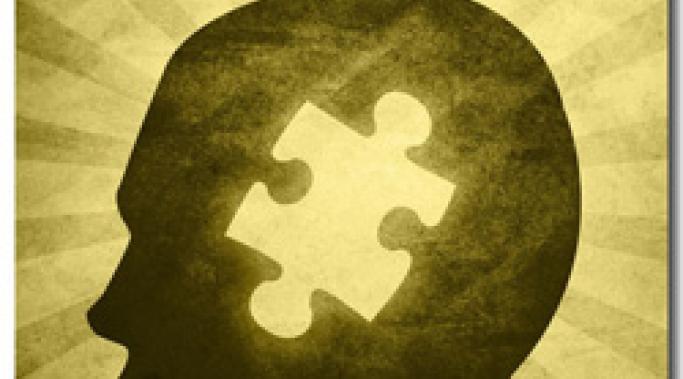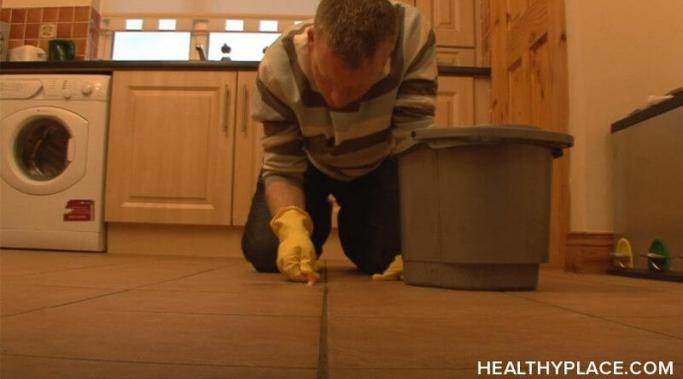Blogs
I have been burdened with side effects since the day I took my first psychotropic medication some 13 years ago. At that time the medication I was on made it impossible for me to be awake, pretty much ever. I had no idea how much hell I was in for and my doctor didn't seem to believe me when I told him about it. So I did the responsible thing - I just kept taking the medication, hoped the treatment would work and that the side effects would go away.
But that's mostly because I didn't know what I was doing. Today I know that severe side effects are something that we choose and are not something that is thrust upon us. We choose what we can live with, even tacitly, always have, always will.
Curing mental illness is simply not possible--despite limited controversy. That's the cold and hard truth. On the flip side, we can become well and experience very little, or no symptoms at all. That is the goal. How can we pursue it?
This concept of “hitting rock bottom” is a common phrase in addiction awareness, intervention, treatment, media, etc. People often have a story of their rock bottom. However what exactly is a rock bottom and how important is it in recovery from an addiction and getting sober?
Abuse affects our foundational thoughts - the ideas of who we are, what we're doing, why we believe what we believe. Manipulative abusers use every weapon against us - mental, emotional, physical - and leave us bleeding our souls onto the floors of our own homes. The damage can be so horrendous that when the abuser is no where to be seen or heard, the injury continues to grow, not to heal.
No where in this world is safe when your abuser's words run laps in your head, circling and creating negative thoughts. Abuse kills from a distance too.
Kate White writes about what living with anxiety is like. Natasha Tracy shares her experiences with bipolar disorder. New HealthyPlace blogger Jack Smith writes about life with depression. And last year Rachel McCarthy James joined us on the HealthyPlace Mental Health TV Show to discuss what living with OCD is like for her. But Craig Ludvigsen can tell us what it's like to have all of those disorders. It's called psychiatric comorbidity - the presence of more than one mental illness in one individual at the same time - and it can be incapacitating.
“ Half of the troubles of this life can be traced to saying yes too quickly and not saying no soon enough.” ~Josh Billings
Sometimes I feel immense pressure to do things I don’t want to do. Other people’s priorities end up being my priorities and then I wonder why I struggle with feeling overwhelmed. For some reason, there seems to be many things I should do. Or things I should want to do. Or things other people expect me to do…in addition to what I already have to do or want to do. Whether it’s because I want to be liked, seen as competent, like to have many interesting projects going at one time, or simply because I said “no” last time, there is tremendous pressure to give into other people’s requests, and say “yes”.
"I’m mad about sanity and wild about good manners." Taz Mopula
These are wonderful days to be whackadoomius! Awareness of mental health issues is at an all-time high, and those of us troubled by unruly squirrels have a cornucopia of resources to draw upon.
But it was not always thus. Medical care specifically targeted towards mental health is a relatively recent phenomenon, and while we all understand our indebtedness to giants like Carl Jung and Oprah Winfrey, lesser lights responsible for pushing the discipline forward are often overlooked.
Doctor Zick Meind Pfrawed is one of these unjustly slighted geniuses. Fortunately, a recent surge of interest in this complex, daring man has revealed that his contribution to the field of psychoanalysis is far greater than originally thought.
(Continued from Part 1 and Part 2)
I suppose for the past five years, I've been living in my little suburban cave, sheltered by Bob's elementary school and our middle-class neighborhood. I hadn't realized just how great a gap exists within our school district, or how many children like Bob are getting trapped in that gap.
Especially in the beginning, when a family is dealing with a loved one's mental illness, it's easy to become embroiled in the emotion of it all. In this television interview, I discuss the 5 points to remember about mental illness in the family.
This week, I want to share a poem with you that was sent to me by a client. Although she and I have been working together for only a short time, she has learned so much and is changing her life. It is truly an honor and privilege to help her finally understand her ADHD brain style, begin to feel more in control of the chaos, experience confidence and finally get things done.
My client is an outstanding individual who has struggled all her life with ADHD and didn’t realize why she felt so different and out of place. She is an intelligent, creative and determined woman who would not give up trying to find the answers to her challenges and as an adult with ADHD, is just now coming out of her shell to experience her own potential, gifts and strengths.







